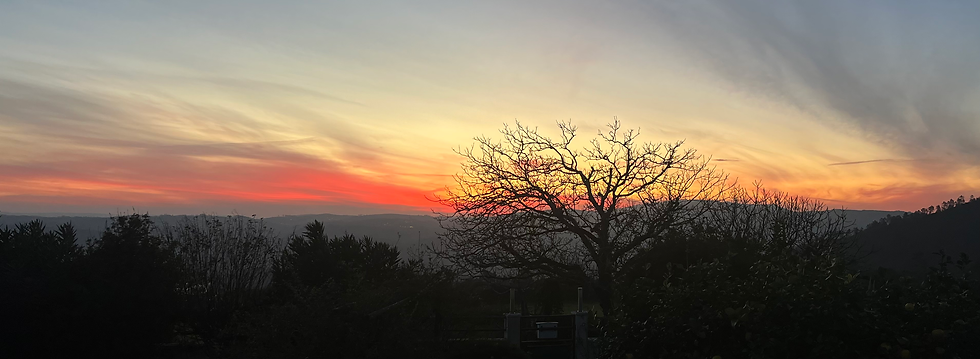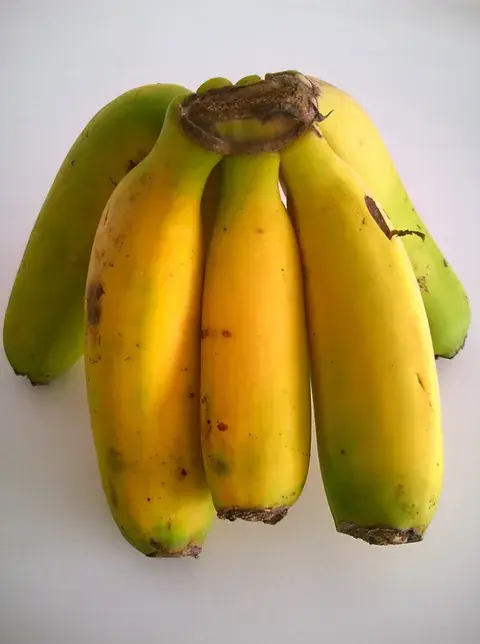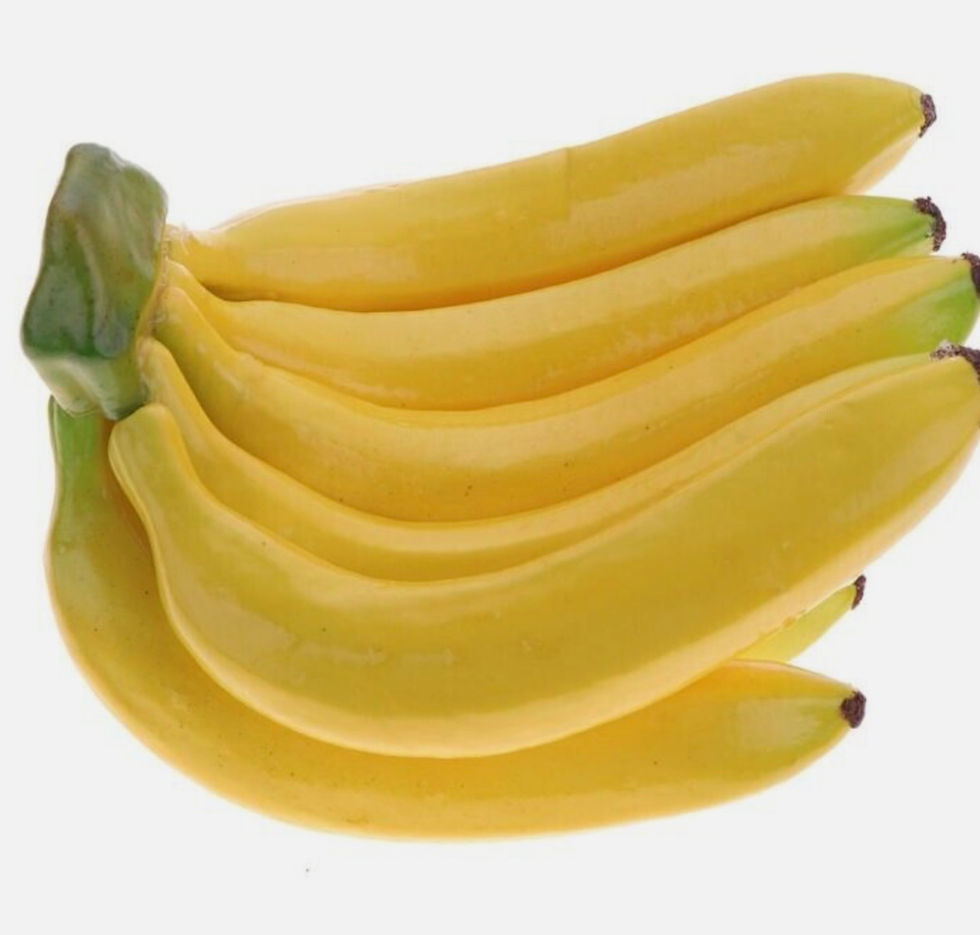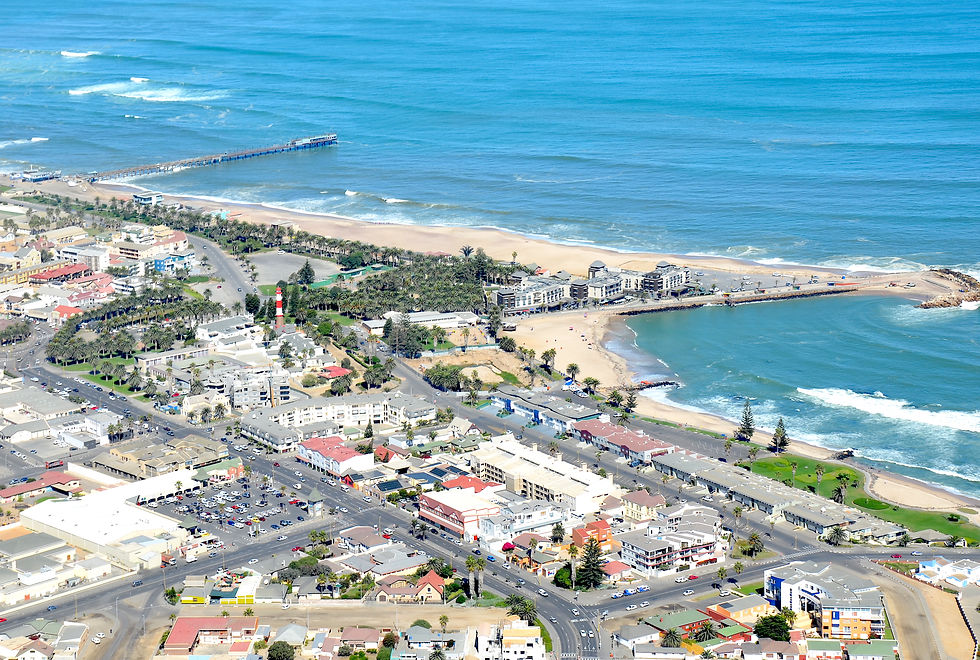
The Unknown Secrets of Madeira Bananas.
Rozanne and I, for the first five years of living in Portugal, often wondered why bananas produced in and branded from Madeira were more than double the price of those imported from Africa and further afield. Being frugal by circumstance as much as in nature, it took us a long time to decide to purchase them to get a better understanding of why they received a premium price. After all, the locals, many poorer than ourselves, could be seen buying them despite the price difference. These bananas were also generally much smaller and often sold much greener than the artificially ripened imports.

To our surprise, they tasted much sweeter, the flesh ready to eat with the skin quite green, but importantly, we soon learned they stayed very edible well beyond the time other bananas could only be used for banana bread. We now, despite the price difference, only buy Madeira bananas.

We also made the same error in buying our beef, we had been told the Portuguese beef was inferior by many expats, especially so by those living in the Algarve. We were guilty of buying imported beef from South America in preference to local beef in our early years here. Only when we started ordering steak, a Saturday lunchtime ritual now, at our local restaurant, Santo Amaro, did we find that they served excellent steak, which, on enquiry, we learned was beef sold through the local butchery in Penela. The stupidest thing about this is that not only was it better in both taste and texture, it reminded us of a Rhodesian steak, but was just as cheap with Vasco, the butcher, cutting it to our preference from the carcass as opposed to buying it pre-vacuum packed in the supermarket. Our biggest challenge is to stop him trimming off too much fat.
“Lean meat might be arguably better for you health-wise, but meat with fat and even better on the bone, is always tastier.” - Peter McSporran
Madeira bananas and good beef are both bought from local stores as opposed to supermarkets. We find ourselves buying more and more from these, often finding, despite the supermarket claims, local produce can be cheaper than the supermarket.

Why am I waxing over this mundane subject, you ask? Like many, but probably more so, I follow the plight of the British farmers who have a multitude of challenges over and above the weather. Viability is a real problem due to farm gate prices from wheat to milk. For example, the supermarkets sell milk at four times what the farmer receives. The supermarkets have been dictating the farmers’ prices for far too long. The farmer is paid less, maybe half as much, for a litre of milk against what they sell for a litre of water.
“You say the farmers receive huge subsidies to ensure their viability; this is a fallacy. The subsidies are there to protect the consumer, not the farmer. Many more consumers have the vote than farmers.” - Peter Mcsporran
The farmer is further burdened by a bureaucracy, often driven by the green lobby, as opposed to good, sound, and logical facts. They are hell-bent on making the farmers’ life a misery of regulation, even introducing legislation making their ability to remain viable tenuous. Little wonder mental health due to stress is now a major issue in the British farming community. There is no sight of the bureaucrats losing interest in creating more rules; after all, it ensures their jobs and those of like-mind queuing up to join them. Few have a modicum of country blood in them. Mud and manure are not for them; computers most of the time, and a nice vehicle fueled by the state to ensure the policing of said rules. The more recent trend in subsidies is to use them to induce farmers to invest in the environment and diversity rather than producing food. What happens when the money for these non-productive initiatives runs out, and the farmer no longer has the means to sustain himself, let alone the means to grow food for the nation? Food production needs tractors, planting and harvesting machinery, storage and, not least, people, all of which will be hard to replace when the only asset you have is fields of wildflowers and a few immature trees grown for their diversity, not their productive use.
“My sympathy lies with the farmers; I will, wherever possible, buy local even if it costs more, especially for my delicious long-life bananas and tasty beef.” - Peter McSporran
Dr Jerry’s Eventful Trip to Namibia and SACU Farmers Unions Meet.
As I stated last week, it was agreed by the council that Anthony Swire-Thompson, President of the Commercial Farmers Union (CFU), myself, his VP, and Dr. Jerry Grant, Deputy Director, would attend the 1993 meeting of Southern African Farmers Unions, an informal grouping at the time, in Swakopmund Namibia.

We duly arrived at the old Harare airport; travel was so much more pleasant then as there were no security checks and corruption was not so rampant; where Jerry insisted that he would carry his suitcase on board despite it being slightly oversized. Jerry, now sadly late, was an imposing figure of a man who, despite his rather gentle nature, came over as intimidating. He finally won the argument and joined us in the departure area, where we settled down for coffee. Anthony and I decided to have a beer and left Jerry guarding his suitcase only to be surprised when the doors closed on the aircraft at departure; there was no Jerry. What could have happened? On arriving in Johannesburg on transit to Windhoek, we could not contact him; both the CFU offices and his wife, Eve, were unaware of his whereabouts. Now, all were concerned about his welfare. We had a long stopover in Johannesburg and after a couple of hours, a very embarrassed Jerry arrived. He seemingly had fallen asleep in the Harare airport cafeterias and missed his flight. He also no longer had his suitcase, as he had to check it into the hold on his later alternate flight despite his arguments.
We boarded for Windhoek, where, on arrival, sure enough, due to Jerry's late arrival for the connection, his suitcase was nowhere to be found. We were to leave early the next day in minibuses for Swakopmund, three in convoy, as all the regional representatives of the farmer's unions were present. Jerry was told his case would be on the early morning flight, so it was decided one minibus would delay its departure and make a detour back to the airport to pick the case up. He did this, but unbeknown to Jerry and us, he collected the wrong suitcase, exactly the same make and colour as his own. In his rush so as not to delay us further he grabbed the first one he saw that looked like his. On arriving at Swakopmund many hours later, a four hundred kilometre trip, the hotel management enquired who Dr Grant was and could he check his suitcase. A red-faced Jerry had to admit he had the wrong suitcase. Maybe it would have been better if he had put it in the hold in the first place. He later admitted that was the second flight he had missed by dozing off in the departure lounge.
The gathering at that time was still informal as South Africa had only recently got majority rule, and many organisations in the region had yet to formalise relationships with similar organisations from the respective countries. The largest contingent was from South Africa with a small team of technocrats in support. Zambia’s National Farmers Union was represented by Ben Kapita, an inspirational man ably supported by John Hudson, who was well-versed in the cultures of Africa along with its flora and fauna. I renewed my friendship with him when I moved to Zambia after losing our farms. The Zimbabwe contingent was also large, with Gary Magadire representing the Zimbabwe Farmers Union, emerging commercial farmers, and Robinson Gapare of the National Farmers' Association of Zimbabwe representing smallholders.
Of interest to us was the diversity of South African agriculture. In Zimbabwe, we produced many diverse commodities but not big enough to make them a strong lobby regionally or internationally. From citrus to stoned fruit, from sugar to wool, all seemed to have the resources to support strong producer representation in South Africa. Despite this, the maize farmers had the loudest voice. When they presented the papers, they were mostly double-Dutch to us as they were in Afrikaans. I remember attending one of their annual congresses in Bloemfontein at a future date, where the language barriers came into play once again, despite the speakers being bilingual, the questions and statements from the floor were nearly always in Afrikaans. Regardless of the communication gaps in the formal sessions, the dialogue was much more productive in the bar and on the farm trips, which came at the end of the conference. Despite the diversity of their production, their biggest concern was the developments on the land issue in Zimbabwe. They thought they would face similar challenges in the future.
The Botswana and Namibia contingents were only concerned about beef, although the land issue was of concern to the Namibians, while Zambia, to its credit, had resolved its land issue by nationalising it all, allowing the farmers retain the land under a ninety-nine renewable and transferable lease which in fact was in all but name a formal title. To this extent, the banks were happy to use the land for security. In years to come, this informal group of Southern African farmer's organisations would become more formal. It was never meant to be a regional lobby but rather a forum to exchange ideas and find solutions to common challenges.
Next week, a Namibian fishing trip and the largest braai event I have ever attended.
Disclaimer: Copyright Peter McSporran. The content in this blog represents my personal views and does not reflect corporate entities.
Comments